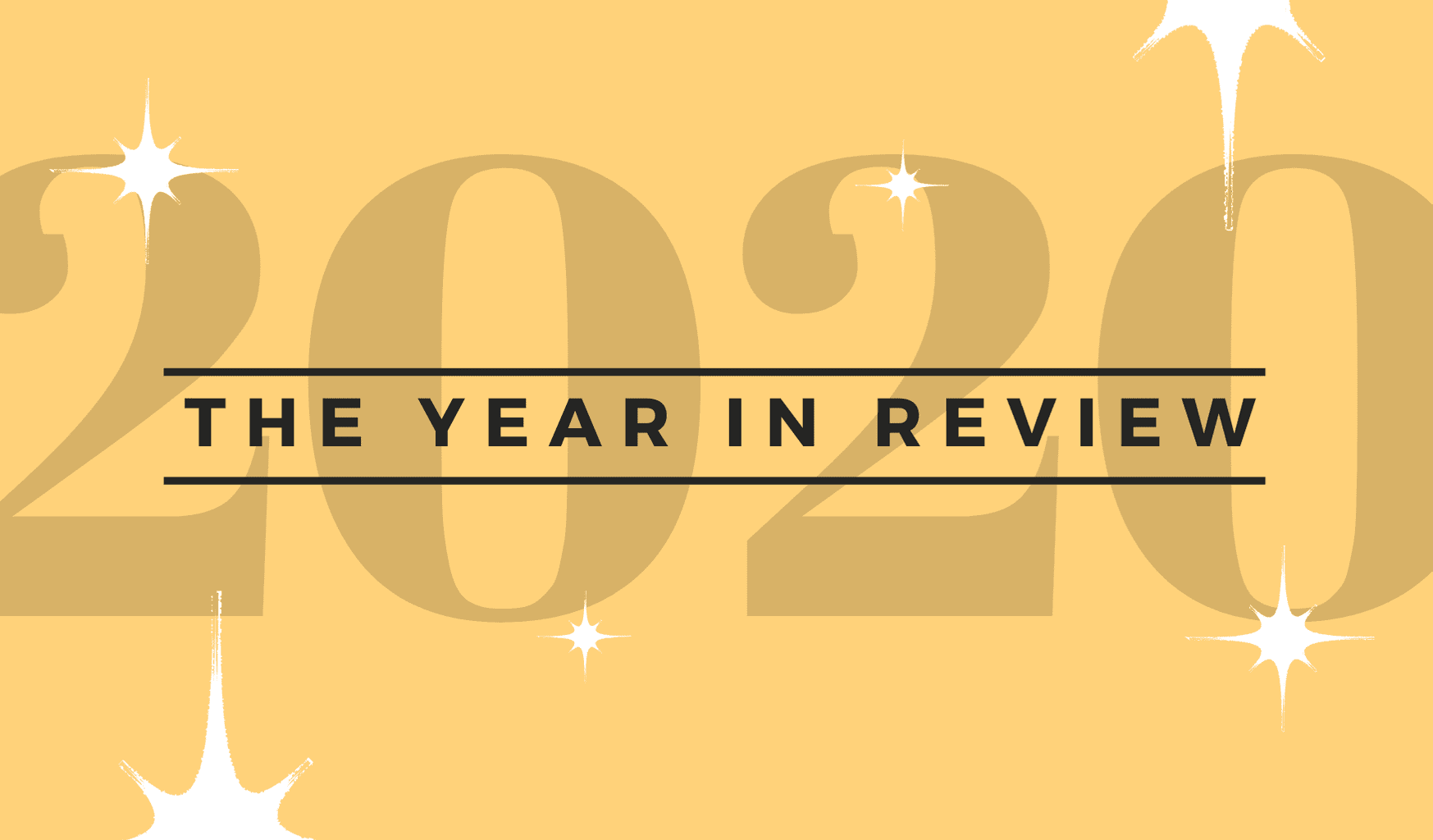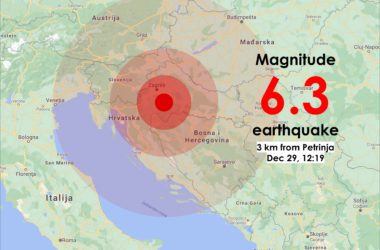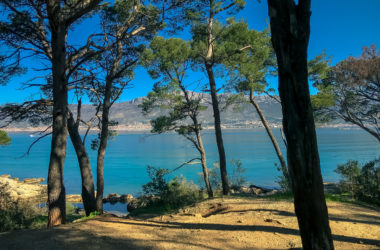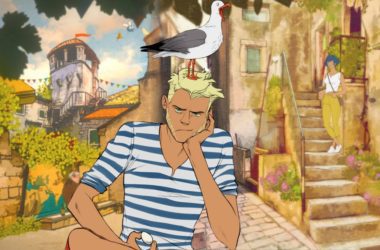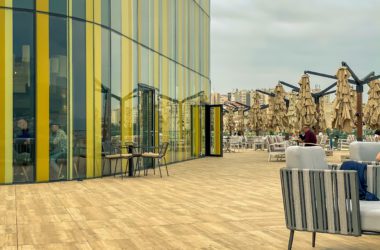2020 is a year that will be forever defined by the Coronavirus crisis. In addition to the coronavirus pandemic, Croatia was hit by two strong earthquakes in 2020 – the Zagreb eartquake on March 22 and on December 29 a much stronger earthquake in the area of Petrinja, Glina, and Sisak. More below of “The Year In Review Croatia 2020” article.
- EVENTS – Year In Review Croatia
- January 5 – Milanović won first round of elections
- January 15 – Beginning of Croatia's EU presidency
- January 27 – Croatian men's handball team celebrates after winning silver medal at European Handball Championships
- February 1 – Croatian port city Rijeka becomes European Capital of Culture
- February 1 – Nikola Mektić and Czech Barbora Krejčikova won the Australian Open
- February 18 – Zoran Milanović is the new President of Croatia
- February 25 – The first case of coronavirus in Croatia
- March 6 – A COVID-19 pandemic infects more than 100,000 people worldwide
- March 11 – WHO declares coronavirus pandemic. More than 120,000 infected that day
- March 19 – The 100th case of coronavirus infection in Croatia was officially recorded
- March 22 – 2020 Zagreb earthquake
- April 2 – with linear growth, the number of coronavirus patients in Croatia exceeded 1000 cases
- May 23 – For the first time since the beginning of the coronavirus epidemic, 0 cases of new infections and deaths were recorded
- July 10 – Croatia enters Exchange Rate Mechanism (ERM II)
- July 13 – Huge traffic jams to enter Croatia despite a record number of new infections
- July 22 – Croatia's ruling conservatives win the parliamentary election
- July 25 – Urban flash flood in Zagreb Croatia
- August 5 – Croatia celebrates Victory and Homeland Thanksgiving Day
- August 24 – In the first three weeks of August, there were 2.3 million tourists in Croatia
- September 5 – Only six foreign cruisers in Croatia in 2020, a drop of 95.6 percent
- November 28 – Cafes, restaurants and gyms are closing
- December 12 – Croatia Has Most Active COVID-19 Cases per 100,000 Inhabitants in Europe
- December 20 – Croatia Women's Handball Team Wins First-Ever Bronze Medal
- December 27 – Coronavirus vaccination begins
- December 28 and 29 – Earthquakes near Petrinja and Sisak 2020
- December 31 – Croatia enters 2021 without fireworks
- Famous Croats Who Died in 2020
- Otto Barić (1933. – 2020.)
- Rajko Dujmić (1954. – 2020.)
- Špiro Guberina (1933. – 2020.)
- Krunoslav Kićo Slabinac (1944. – 2020.)
- Mustafa Nadarević (1943. – 2020.)
- Zdravko Tomac (1937. – 2020.)
- Vera Zima (1953. – 2020.)
- Slaven Zambata (1940. – 2020.)
- Božidar Alić (1954. – 2020.)
- Milka Babović (1928. – 2020.)
- Ivo Banac (1947. – 2020.)
- Branko Cikatić (1954. – 2020.)
- Žarko Domljan (1932. – 2020.)
EVENTS – Year In Review Croatia
January 5 – Milanović won first round of elections
Relative winner in the first round of the presidential election and 10th Croatian Prime Minister Zoran Milanovic defeats his opponent, 4th Croatian President Kolinda Grabar-Kitarovic, by just over 104,000 votes. Milanovic won in almost all bigger Croatian cities.
January 15 – Beginning of Croatia’s EU presidency
From 1 January to 30 June 2020, Croatia will take over the Presidency of the Council of the European Union for the first time. During this six-month period, Croatia will lead the activities of the Council as an honest broker, building cooperation and agreement among the Member States in a spirit of consensus and mutual respect.
Source: https://eu2020.hr/Home/Custom?code=Program (31.12.2020.)
January 27 – Croatian men’s handball team celebrates after winning silver medal at European Handball Championships
People welcome Croatian men’s handball team and celebrate their winning the silver medal at the European Handball Championships at Ban Josip Jelacic Square in Zagreb, Croatia, on Jan. 27, 2020.
February 1 – Croatian port city Rijeka becomes European Capital of Culture
The minister said that Rijeka is also the first Croatian city to become a European Capital of Culture, which is a great opportunity for branding Rijeka not only as a port and industrial city but also as a cultural center of great importance. By the end of the year, as part of the Rijeka 2020 project, the European Capital of Culture will have completed the construction and renovation of several museums.
Source: https://dailynewshungary.com/croatian-port-city-rijeka-becomes-european-capital-of-culture/ (31.12.2020.)
February 1 – Nikola Mektić and Czech Barbora Krejčikova won the Australian Open
Croatian Davis Cup national team member Nikola Mektić and Czech Barbora Krejčikova won the Australian Open. This is the 14th senior Grand Slam title for Croatia.
February 18 – Zoran Milanović is the new President of Croatia
Center-left former Prime Minister Zoran Milanovic was sworn in as president of Croatia on Tuesday, six weeks after he defeated incumbent conservative Kolinda Grabar-Kitarovic in a run-off election. “Patriotism, in contrast to raw nationalism, is a critical attachment and negation of exclusivity,” Milanovic said in his speech. “Patriotism is a constant and persistent effort to affirm those aspects of statehood that have made our society and our lives better, more meaningful, and more inspirational.”
Source: https://balkaninsight.com/2020/02/18/centre-left-croatian-president-takes-oath-of-office/ (31.12.2020.)
February 25 – The first case of coronavirus in Croatia
The first case in the Republic of Croatia was reported in Zagreb on 25 February, when a patient who had come from Italy was tested positive. On the same day, the second case related to the first one was confirmed. In March 2020, a cluster of cases was reported in numerous Croatian cities. On 12 March, the first recovery was reported, and on 18 March, the first death from the virus was confirmed.
Source: https://en.wikipedia.org/wiki/COVID-19_pandemic_in_Croatia (31.12.2020.)
March 6 – A COVID-19 pandemic infects more than 100,000 people worldwide
March 11 – WHO declares coronavirus pandemic. More than 120,000 infected that day
March 19 – The 100th case of coronavirus infection in Croatia was officially recorded
March 22 – 2020 Zagreb earthquake
At approximately 6:24 AM CET on the morning of 22 March 2020, an earthquake of magnitude 5.3 Mw, 5.5 ML, hit Zagreb, with an epicenter 7 kilometers (4.3 mi) north of the city center. It was the strongest earthquake in Zagreb since the 1880 earthquake and caused substantial damage in the historic city center. Over 1,900 buildings are reported to have become uninhabitable by the earthquake damage. A total of 27 people were injured, of whom one teenage girl died succumbing to her injuries. Reports suggest that 7 Croats died as a strong earthquake hit Croatia.
Source: Wikipedia (31.12.2020.)
April 2 – with linear growth, the number of coronavirus patients in Croatia exceeded 1000 cases
May 23 – For the first time since the beginning of the coronavirus epidemic, 0 cases of new infections and deaths were recorded
July 10 – Croatia enters Exchange Rate Mechanism (ERM II)
Euro is the official Croatian currency from 2023! The Republic of Croatia has entered the European Exchange Rate Mechanism (ERM II), which is a key step in the process of introducing the euro. It has been more than five years since the last country, Lithuania, joined the eurozone, so the release of Croatia and Bulgaria into the ERM-2 mechanism, which is a kind of waiting room before the introduction of the euro, is a big step for the entire eurozone. The most important reason is to raise the chance of attracting investments, as well as a more favorable price of borrowing.
July 13 – Huge traffic jams to enter Croatia despite a record number of new infections
Despite the COVID-19 pandemic nearly halting the travel industry, Croatia is seeing long queues of traffic building up along its border. According to eVisitor system data, there are half a million holiday-goers in Croatia right now, mostly coming from Germany and Central Europe. However, many predictions say there will only be about 40 per cent of tourists visiting the country this year compared to 2019, while souvenir shops and restaurants remain mostly empty.
Source: https://www.euronews.com/2020/07/12/covid-19-travel-huge-traffic-jams-to-enter-croatia-despite-record-number-of-new-infections (31.12.2020.)
July 22 – Croatia’s ruling conservatives win the parliamentary election
The conservative Croatian Democratic Union (HDZ) party has consolidated its power in Croatia after winning 66 seats in the country’s 151-seat parliament following Sunday’s election. HDZ leader and incumbent prime minister Andrej Plenković said this victory was “great”, but also an “obligation”: “It is an obligation because we had a tough mandate full of challenges behind us, and the challenges ahead of us are even bigger. Such circumstances require hard work, energy, enthusiasm, dedication.”
Source: https://www.euronews.com/2020/07/04/croatia-election-will-the-ruling-party-s-early-election-gamble-pay-off (31.12.2020.)
July 25 – Urban flash flood in Zagreb Croatia
Croatian capital Zagreb battled widespread flooding on Friday night, July 24, 2020, following torrential rains and strong winds that left the city in chaos. The emergency department received more than 1 000 calls from the public as the city was submerged underwater, stranding many motorists on the road and residents in their homes.
Source: https://watchers.news/2020/07/27/zagreb-grapples-with-severe-flooding-after-torrential-rains-croatia/ (31.12.2020.)
August 5 – Croatia celebrates Victory and Homeland Thanksgiving Day
Croatia on August 5 celebrates the national holiday called Victory and Homeland Thanksgiving Day and Veterans Day. “Storm” is, along with “Flash”, a key operation that led to the end of the Homeland War. After four years of occupation of almost a third of Croatian territory, living in eternal fear of enemy retaliation, grenades that threatened day and night, numerous unsuccessful negotiations and initiatives, the Republic of Croatia had no choice but to liberate Croatian territory by its own armed forces.
August 24 – In the first three weeks of August, there were 2.3 million tourists in Croatia
From August 1st to 23rd, 2.3 million tourists stayed in Croatia, realizing 17.6 million overnight stays, which means that overnight stays were at the level of 67 percent from the same period last year.
Source: https://www.index.hr/vijesti/clanak/u-tri-tjedna-kolovoza-u-hrvatskoj-bilo-23-milijuna-turista/2207304.aspx (31.12.2020.)
September 5 – Only six foreign cruisers in Croatia in 2020, a drop of 95.6 percent
November 28 – Cafes, restaurants and gyms are closing
Due to the bad epidemiological situation, cafes and restaurants are being closed, with delivery enabled. Gyms are also closing, and churches, schools, shops and cultural and entertainment establishments may operate with special restrictions.
December 12 – Croatia Has Most Active COVID-19 Cases per 100,000 Inhabitants in Europe
December 20 – Croatia Women’s Handball Team Wins First-Ever Bronze Medal
Croatia surprised everyone and won the bronze final against Denmark in Herning. The Croatians won 25-19, after it was 11-11 at the break. Croatia is the big surprise of the European Championships. The Croatians fell to France in the semifinals after being rounded and beaten 30-19. The same thing happened against Norway (25-36 defeat) in the main round, writes NTB.
Source: https://www.time24.news/2020/12/croatia-took-bronze-in-the-european-handball-championship.html (31.12.2020.)
December 27 – Coronavirus vaccination begins
The coordinated vaccination campaign of unprecedented scale in the European Union is a crucial step in curbing the pandemic.
December 28 and 29 – Earthquakes near Petrinja and Sisak 2020
A deadly earthquake leaves Croatia in ruins. At least seven people were killed. That is a number that has been confirmed, and it is not excluded that more victims will be discovered later. Among the dead are a 12-year-old girl in Petrinja, a 20-year-old boy from one house, a grandfather from another, and a father and son from the same house in Majske Poljane near Glina. It was later confirmed that another male person had died in Majske Poljane.
Source: https://ilcroatia.com/deadly-earthquake-leaves-croatia-in-ruins/ (31.12.2020.)
December 31 – Croatia enters 2021 without fireworks
Croatian cities will donate all the money for fireworks this year to help earthquake-affected areas.
Famous Croats Who Died in 2020
Otto Barić (1933. – 2020.)
Otto Barić was a Croatian professional football player and manager. Otto Baric led as many as 14 clubs and three national teams in his rich coaching career. He achieved his greatest club success with Rapid Vienna and Casino Salzburg (now Red Bull Salzburg). With Rapid, he won 10 domestic trophies, while in 1985, he played in the Cup Winners’ Cup final and was defeated by Everton 3:1.
Source: Wikipedia (31.12.2020.)
Rajko Dujmić (1954. – 2020.)
Rajko Dujmić (7 August 1954 – 4 August 2020) was a Croatian songwriter, composer, and music producer, best known as a member of the pop group Novi fosili. He composed the winning entry of Eurovision Song Contest 1989, “Rock me”, along with Stevo Cvikić. They also composed the two previous Yugoslavian entries, “Ja sam za ples”, sung by Novi fosili, and “Mangup”, sung by Srebrna Krila.
Source: Wikipedia (31.12.2020.)
Špiro Guberina (1933. – 2020.)
Špiro Guberina (1 March 1933 – 27 November 2020) was a Croatian actor. He was born in Šibenik, Kingdom of Yugoslavia. His career began in 1957.[3] He was known for his roles as Marko in The Secret of an Old Attic (1984), Stari in Agonija (1998), and as the Priest in The Last Will (2001).
Source: Wikipedia (31.12.2020.)
Krunoslav Kićo Slabinac (1944. – 2020.)
Krunoslav “Kićo” Slabinac (28 March 1944 – 13 November 2020) was a Croatian pop singer. His specialties were the songs nowadays inspired by the folk music of the Slavonia region of Croatia and the uses of traditional instruments such as the tamburica. Slabinac’s song “Zbog jedne divne žene” was a huge hit that solidified his status as a singer. However, in the 1970s, legal troubles and time spent abroad set back his career. After his return from the United States, Slabinac focused on folk music, although he remained active in the pop music scene.
Source: Wikipedia (31.12.2020.)
Mustafa Nadarević (1943. – 2020.)
Mustafa Nadarević (2 May 1943 – 22 November 2020) was a Yugoslav and later Bosnian and Croatian film, theatre, and television actor. He starred in over 70 films; some of those films are The Smell of Quinces (1982), When Father Was Away on Business (1985), Reflections (1987), The Glembays (1988), Kuduz (1989), Silent Gunpowder (1990), The Perfect Circle (1997), Days and Hours (2004), Mirage (2004), and Halima’s Path (2012). More recently, Nadarević was best known for playing Izet Fazlinović in the Bosnian sitcom Lud, zbunjen, normalan since the beginning of the series in 2007.
Source: Wikipedia (31.12.2020.)
Zdravko Tomac (1937. – 2020.)
Zdravko Tomac (24 May 1937 – 4 January 2020) was a Croatian politician.A native of Slavonski Brod, Zdravko Tomac began his political career in the Communist Party of Yugoslavia. There he rose through the ranks, becoming a close associate of Jakov Blažević. In the late 1980s he became one of the chief ideologists of the League of Communists of Croatia and one of the closest associates of Ivica Račan.
Source: Wikipedia (31.12.2020.)
Vera Zima (1953. – 2020.)
Vjeročka Zimova (21 March 1953 – 7 November 2020), better known as Vera Zima, was a Croatian actress. She appeared in more than fifty films since 1975. She was of paternal Slovak descent.
Source: Wikipedia (31.12.2020.)
Slaven Zambata (1940. – 2020.)
Slaven Zambata was a Croatian professional football player best known for his time at Dinamo Zagreb in the 1960s, for whom he appeared in 171 Yugoslav First League matches. He was also a Yugoslav international, scoring 21 goals in 31 matches for the national side.
Source: Wikipedia (31.12.2020.)
Božidar Alić (1954. – 2020.)
Božidar Alić (24 December 1954 – 3 March 2020) was a Croatian actor. His acting career was damaged by his right-wing political stances. He was ostracized by the Croatian Association of dramatic artists for his statement in which he portrayed political opponents of Kolinda Grabar-Kitarović as Chetniks and Serb lovers. After this incident, he left the Association.
Source: Wikipedia (31.12.2020.)
Milka Babović (1928. – 2020.)
Milena “Milka” Babović (27 October 1928 – 26 December 2020) was a Croatian sprint and hurdles runner and journalist. She won numerous sprinting events in the former Yugoslavia and was selected as the best athlete several times. She also had a noted career as a sports journalist and editor in television. She worked as a sports journalist in Narodni sport since 1949 and moved to TV Zagreb in 1957 where she became the first sports editor.
Ivo Banac (1947. – 2020.)
Ivo Banac was a Croatian-American historian, a professor of European history at Yale University and a politician of the former Liberal Party in Croatia, known as the Great Bard of Croatian historiography. As of 2012, Banac was a consultant for the Bosnian Institute.
Source: Wikipedia (31.12.2020.)
Branko Cikatić (1954. – 2020.)
Branko Cikatić (4 October 1954 – 23 March 2020) was a Croatian heavyweight kickboxer, the first Croatian-born fighter to achieve international success. He was the first K-1 World Grand Prix Champion. The tournament was held on April 30, 1993 in Japan.
Source: Wikipedia (31.12.2020.)
Žarko Domljan (1932. – 2020.)
Žarko Domljan (14 September 1932 – 5 September 2020) was a Croatian politician who served as the first Speaker of the Croatian Parliament following Croatia’s independence from Yugoslavia and as the 11th speaker overall. He served in this position from 30 May 1990 to 2 August 1992. Domljan was later a representative in the Parliamentary Assembly of the Council of Europe.
Source: Wikipedia (21.12.2020.)
Source:
1. https://www.jutarnji.hr/vijesti/svijet/ove-godine-preminuo-je-niz-poznatih-osoba-u-hrvatskoj-i-svijetu-izdvojili-smo-njih-60-15039996 (31.12.2020.)
2. https://hr.wikipedia.org/wiki/2020. (31.12.2020.)





